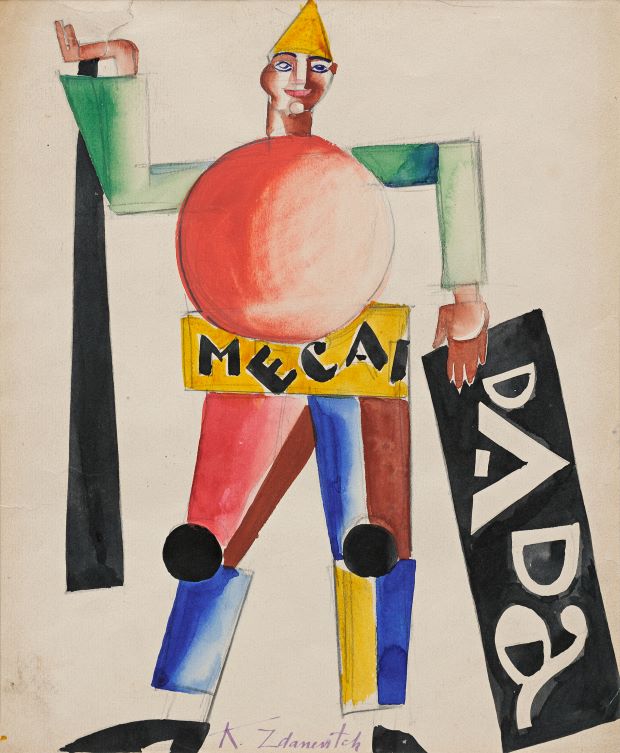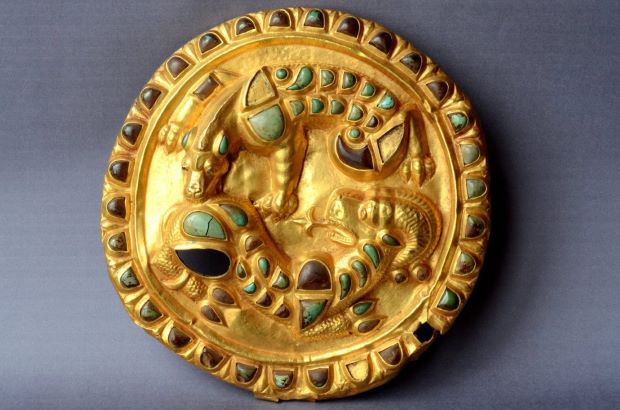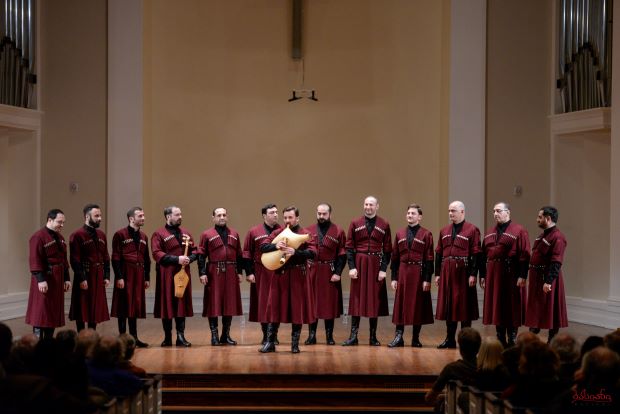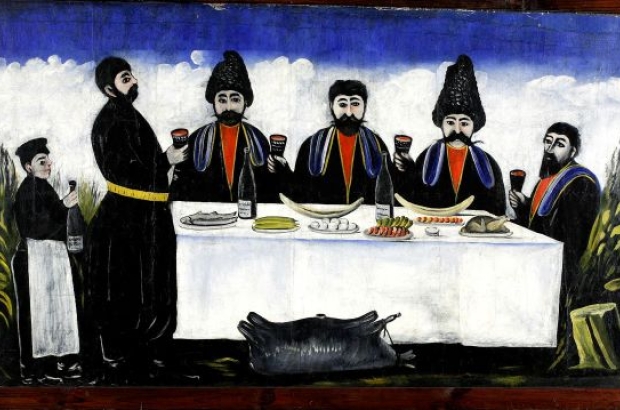- Daily & Weekly newsletters
- Buy & download The Bulletin
- Comment on our articles
Europalia: Biennial arts festival turns the spotlight on Georgia this autumn
Black Sea nation Georgia is to unveil its rich cultural identity in some 60 events across Belgium at the Europalia arts festival from 4 October to 14 January.
Belgium’s invitation to the southern Caucasian country is an opportunity for the public to discover both its history of cultural exchange and contemporary arts and aspirations.
It’s also a political gesture that supports Georgia’s ambition to join the EU; the country’s candidacy was refused in 2022 while neighbours Ukraine and Moldova were accepted.
Located at a crossroads of civilizations, the nation is still fighting Russian occupation, underlined Georgia’s culture minister Thea Tsulukani at a press conference in Brussels.
Despite being a small country [less than 4 million population], it has played a defensive role for centuries, she said, pointing out that it converted to Christianity in the 4th century and has long looked to Europe for its future.
Georgia’s geographical situation straddling Europe and Asia has resulted in diverse influences, from Greek and Persian to Ottoman and Russian.
These have contributed to its remarkable identity, revealing a spirit of resilience and pride and creativity in all forms of art, said Belgian foreign minister Hadja Lahbib.
In choosing Georgia for Belgium’s prestigious biennial, it’s possible to discover the cultural treasures that the country has offered to humanity for centuries, she added.

The multidisciplinary programme encompasses visual arts, performances, concerts, films and literature in venues around Belgium plus some neighbouring countries.
A central theme is the multi-voice singing tradition of polyphony, outlined Europalia’s artistic director Dirk Vermaelen. This included voices from its conflict zones, the disputed territories of Abkhazia and South Ossetia.
Another major focus, remembrance, also recalled historic battles, while exploring the country’s collective memory shaped by its struggle for independence.

The festival’s flagship exhibition, opening at Bozar on 5 October, The avant-garde in Georgia (1900-1936), highlights an overlooked chapter in the European art world. The country enjoyed a flourishing art scene during following the fall of the Russian empire in 1917. Artists in the capital Tbilisi expressed their new-found freedom by blending East and West traditions, including Futurism, Expressionism and Cubism, when decorating cafes and restaurants. Paintings, drawings, film, photos, poetry and costume will serve as a testament to this creative fervour. If Stalin’s purges from 1936 marked the end of this period, it was to prove an inspiration to later generations of artists.
Europalia’s second major exhibition Georgia: A Story of Encounters at the Art & History Museum in Brussels from 27 October, focuses on heritage. It presents unseen treasures from the museum’s own collections as well as Georgian: providing an insight into the country’s rich history, from the Neolithic age to its forging of precious metals and vibrant wine culture, the oldest in the world.

The aim was to show that different encounters and influences played a role in creating a specific culture in Georgia, said curator Professor Bernard Coulie. This was the most important exhibition on its heritage to take place outside the country in a century, he added.
Georgia’s long wine history has contributed to another of the country’s distinctive traditions, the supra (pictured, main image), which is also recognised by Unesco. These feasts or banquets epitomise its renowned hospitality. If wine forms the centrepiece, regional cuisine competes and they are both accompanied by storytelling, songs and music.
A modern version of a supra by award-winning Georgian-German novelist and playwright Nino Haratischwili subverts the usually male tradition. She invites Belgian and Georgian women to join her at KVS in Brussels and de Singel in Antwerp. Haratischwili also presents her new work Phaedra in Flames, the first part of a trilogy about strong women in mythology, at KVS.

Polyphonic choirs naturally feature prominently in the festival’s performing arts and music programme. The Basiani Ensemble (pictured) take to the stage solo and with female choirs in Liège, Namur and Mons.
From the world of classical music, international stars violinist Lisa Batiashvili and pianist Khatia Buniatshvili each perform recitals by composers from their home country.
An aerial dance production by the Georgian Nation Sukhishvili Ballet at Théâtre National in Brussels on 14 December is expected to sell out, while various puppet shows are also tipped to be crowd pleasers. The latter include contemporary creations. In Mud Mother, Maisie Woodford reflects on motherhood in a work that fuses puppetry with dance and electronic music.
A key component of Europalia is running artist residencies and opportunities for interdisciplinary collaborations. This edition continues the custom; bringing together Georgian artists - including its diaspora – to question living traditions from a contemporary perspective.
Europalia Georgia
4 October to 14 January
Multiple locations across Belgium plus venues in France and the Netherlands
Photos: (main image) Niko Pirosmani, The feast of four citizens ©National Museum of Georgia; Karlo Kacharava, 1991. Georgia ©Karlo Kacharava; Sketch for 'Malshtrem' by Kiril Zdanevich (1924) Georgian State Museum of Theatre Music Film and Choreography Art Palace; Gold disc, Gonio, 2nd - 3rd centuries AD, Gonio ©Batumi Archeological Museum; ©Basiani Ensemble
















